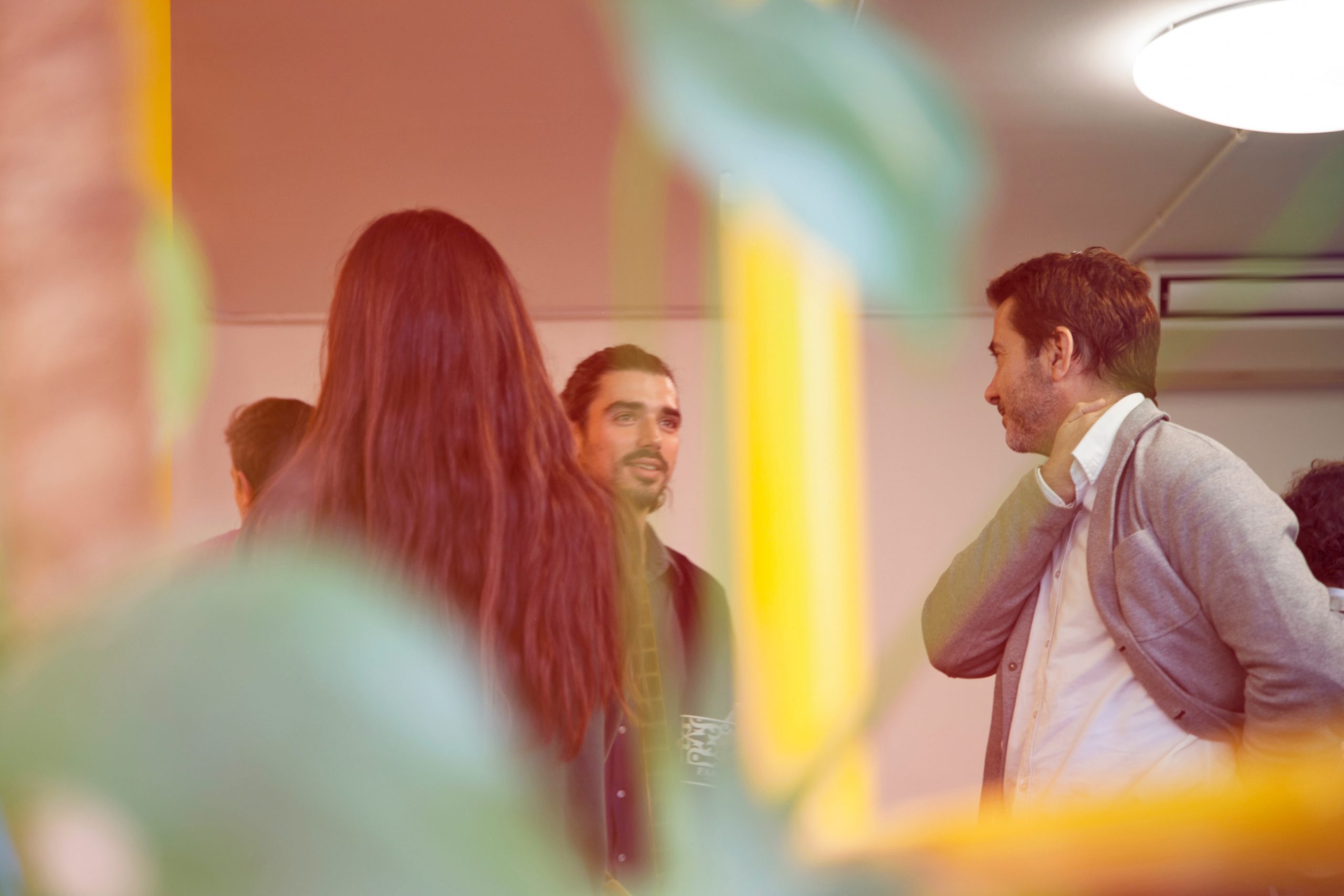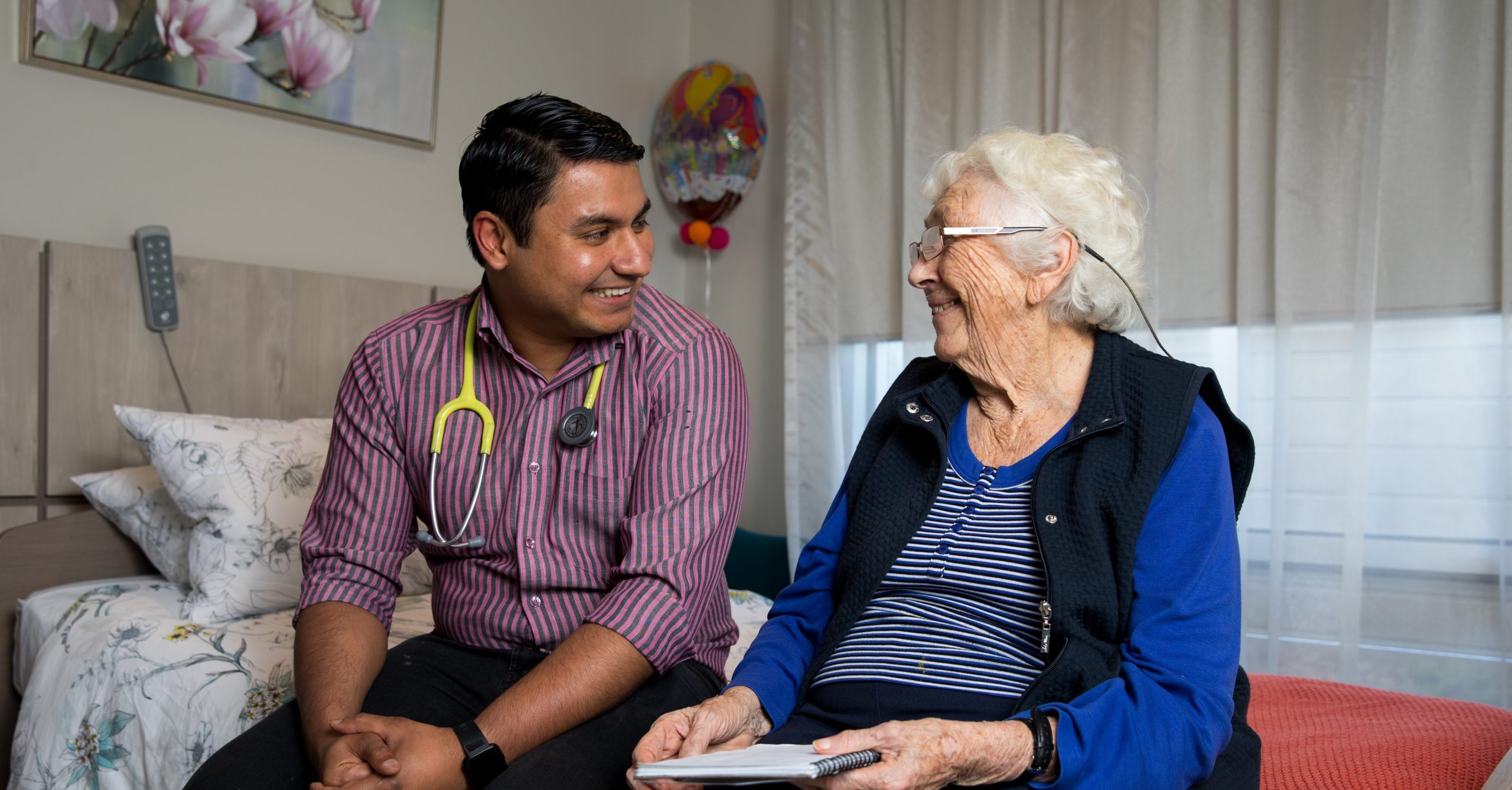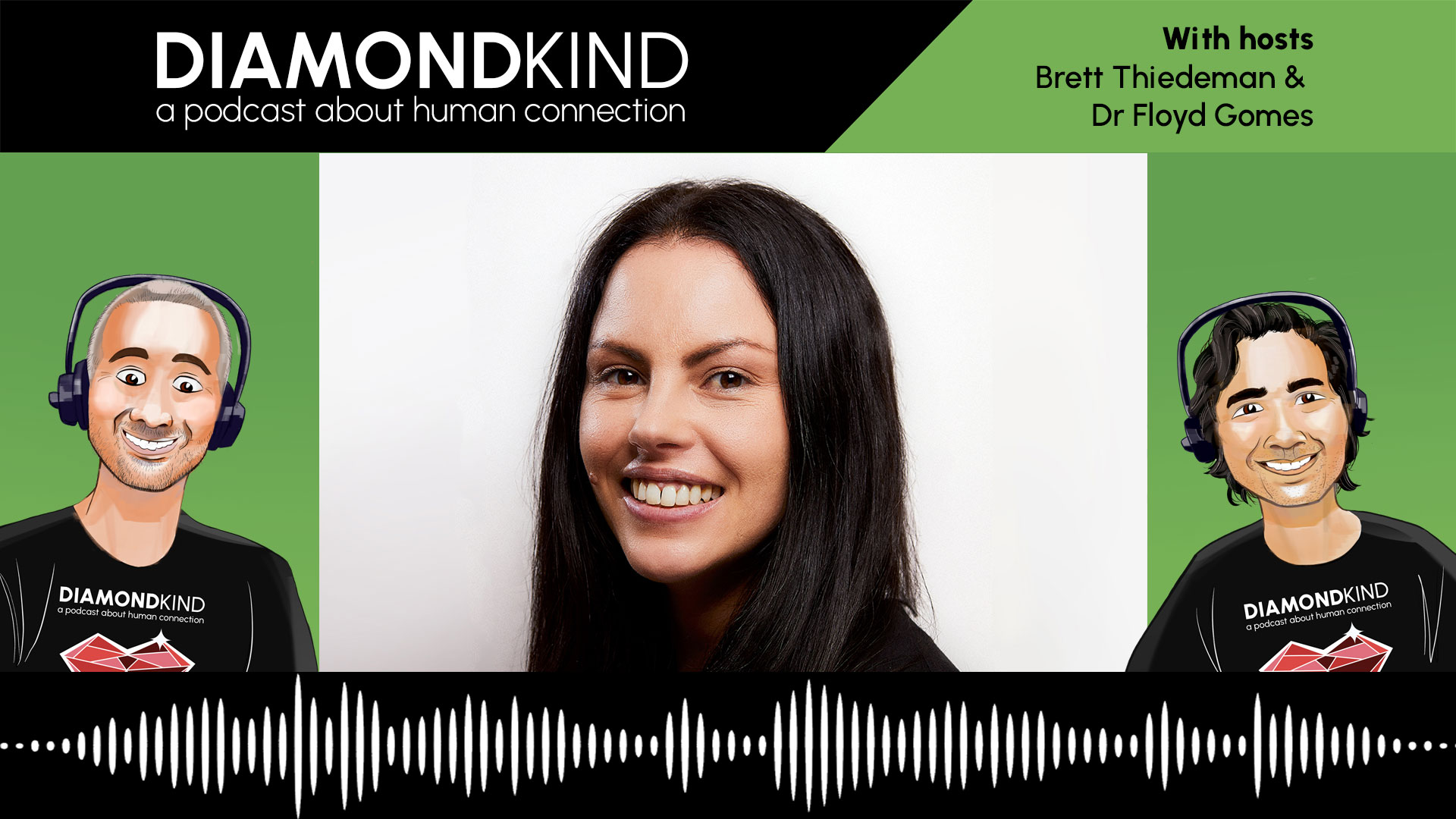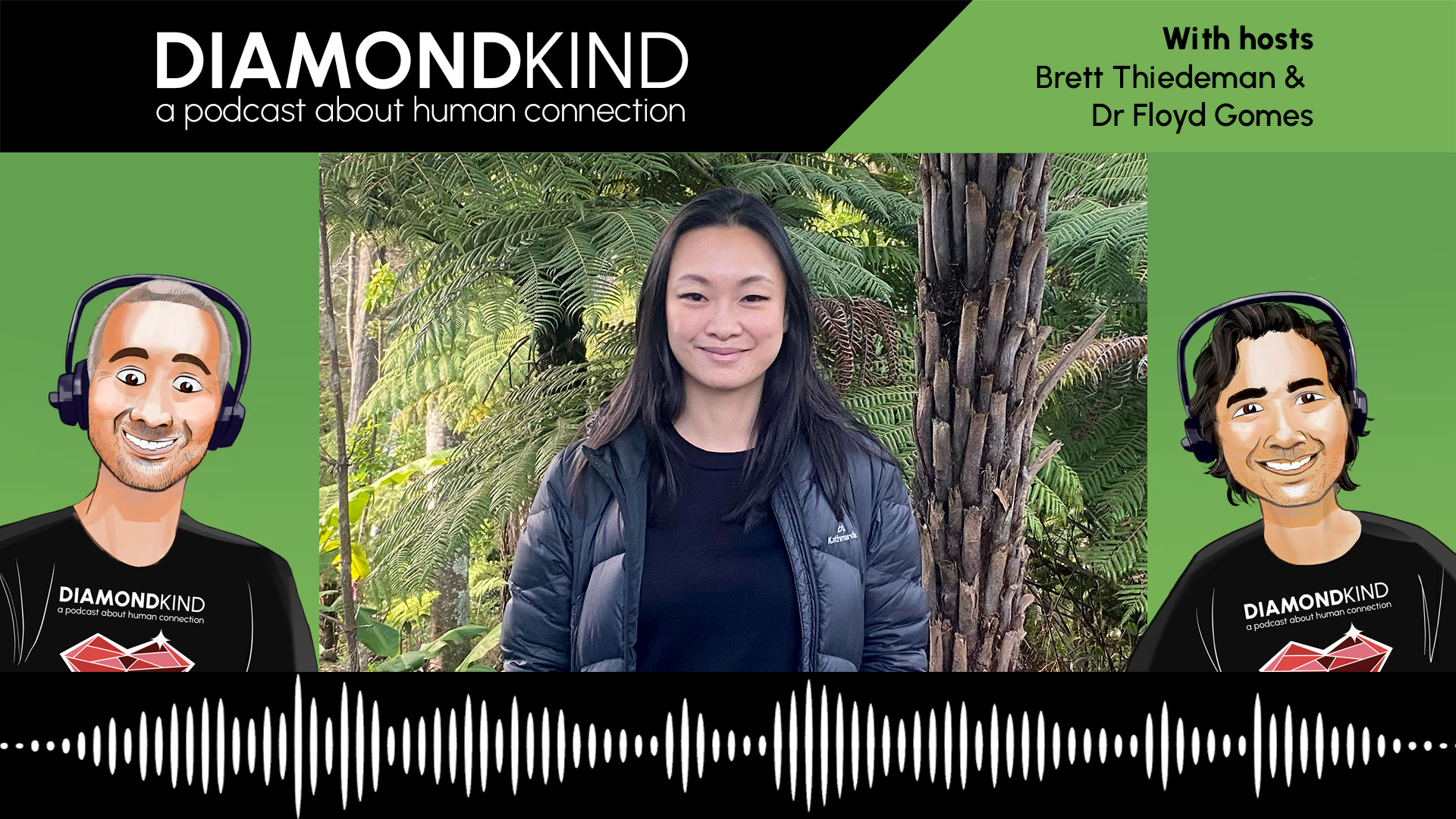In this episode, Dr Rahardja follows up on her previous episode and discusses women’s health and the importance of cervical screening.
Brett: Hello, hello, and welcome back to the Diamond Kind Podcast. Today, we’ve got a special episode, we had Stephanie, who’s one of the doctors at Atticus health in Hardware Lane, who we spoke to earlier in the month. And it was on the back of cervical screening and women’s health. And Steph had also written an article earlier in July. And from that, we’ve got a lot of questions. So we thought we’d get Stephanie back on, so we can ask some of these questions and so it can benefit lots more people. So without further ado, I will call Steph.
Steph: Hi, Brett. Hopefully, you can hear me now.
Brett: Yeah. Hey, Steph. How are you going?
Steph: Good. How are you?
Brett: Steph, Thanks for Thanks for being on, on the diamond con podcast again. What are you up to at the moment? Tell us tell and tell everyone what you’re doing at the moment.
Steph: At the moment right now?
Brett: Yeah, right now, where are you?
Steph: I’m actually at home. I’m in New Zealand.
Brett: Yeah.
Steph: I’m in Auckland, it is probably what I would say is my first real trip back home since the pandemic started.
Brett: Oh, that’s exciting.
Steph: I tried to go home at the start of June. But unfortunately, I was not Rona proof. Yeah, I got COVID. So I had to isolate the entire time I was here. I didn’t really get to see family back then. So I’m here. Take two. Everything’s going well, so far.
Brett: Oh, that’s good. That’s really nice. And family and friends are happy to have you back? Excited?
Steph: Yeah, yeah.
Brett: That’s awesome.
Steph: I’m not planning to do too much. Just see family, friends and just relax.
Brett: Yeah, that sounds very good to me. Steph, thanks for your time. You know, especially as you’ve gone back to New Zealand and with friends and family, and thanks for making the time. For us today. It’s obviously yeah, an important issue. And we’ve had a lot of questions since your last podcast and an article that you wrote back in at the start of July as well. So what I’ll do is I’ll just ask you some of these questions. And yeah, we’ll go from there.
Brett: So the first question was, what is the cervical screening program? And why is it important?
Steph: That’s a great question to start off with. Right, I might just start by explaining what screening actually is. So the medical sort of definition for screening is really with checking for disease when there are no symptoms. So what you’re doing is you’re really taking group of otherwise healthy individuals, and checking to see which people in that group may have a higher probability of having or developing a certain disease, right. In this case, we’re talking about cervical cancer. So you know, the point is, really, because when we do these screening tests, we might actually find some disease at an earliest stage. And so hopefully, that means that there’s a better chance of curing the disease at sort of individual level, earlier detection leads to better chance of curing the disease. But I think it’s important to think about it at a population or global level as well. So screening programs, like the one that we have here can be one way of reducing the incidence of disease in a large group of people.
Steph: And it’s, we know, it’s really good in Australia, where we’ve had a comprehensive sort of screening programs since the early 90s. Which already sort of by 2010, we’ve managed to halve the ratio of cervical cancer in women aged over 25. It’s been really effective.
Brett: And how often does it have to be done Steph?
Steph: So it used to be done every two years, it was what women would have known as your Pap smear. And that was really looking at changes that had already happened to the cervical cells. Whereas sort of in December 2017, we actually transition to a five yearly screening program. So now if your results are normal, you get tested done every five years. And that’s really because we’ve got such a great screening program, but also a really good vaccination program as well. The test that the lab does, is actually slightly different. So it can actually look, we’re actually looking for the human papilloma virus or the HPV virus, which some people might also know what the wart virus. And then if the lab picks that up, then they do the additional tests to go on and look for any changes in themselves. So essentially, we can find changes much earlier and protect this group of individuals that might be at a higher risk a lot earlier.
Brett: That’s great. And are you able to just, for the listener Steph, just to describe the procedure?
Steph: Yeah, of course. So, you know, it might sound daunting, it’s really not, basically just arrange, you know, just an appointment with your GP like normally would. And then when you come in, we’ll discuss things like any previous cervical screening or PAP smear results. Whether or not you’ve had any abnormal results in the past with IVF treatment, we’ll also talk about whether you’ve had any concerning symptoms. So that might be things like a regular vaginal bleeding, we’ll go through your obstetric history, any previous pregnancies, any future plans for pregnancy as well, then there might be some personal questions such as questions about contraception and safe sex. And this is just so that we can understand your healthcare needs, and to work out whether you need any additional tests on the same day. I found that it can be a really great way to discuss other important topics that patients might have put off discussing, you know, things like painful or heavy periods, problems becoming pregnant, any concerns about sexually transmitted infections, for example, yeah.
Steph: Then once we’ve had this discussion, the next part is an examination. And that’s when we actually do the cervical screening tests. So it’s an internal exam, which might be a bit uncomfortable, but it shouldn’t be painful. To be honest, it probably takes me more time to set everything up than to actually take the sample. Yeah. And if someone hasn’t had one before, I always run them through the process and show them the equipment that we use and make sure that you know they’re comfortable. Before we actually get started. Then once we start, the part we’re looking for here is the cervix. And once we’ve seen the cervix, I just use a brush to take the sample, then goes that goes off. Then we talk to pathology and usually get your results anyway, sort of between two to three weeks. And with that, if you need an STI test or test for sexually transmitted infections, we can actually just do it at the same time, that allows it to run off the same.
Brett: Yeah, exactly. Right. Yeah. So it could be like, like an overall sort of women health consultation in the end.
Steph: Yeah, yeah. That’s right.
Brett: And so one of the other questions, Steph was, has a different to a pap smear.
Steph: Yeah, I’ve found that sometimes women get a little bit confused. They think that they need to do two tests. You don’t. The good news is it’s actually pretty much, you know, is the same procedure, same process. The terms are different, mainly to do with the change in the tests that we’re doing at the lab. So in the earlier days, as I said, the lab used to look at changes in your cervix, but now what they’re looking for, and much earlier changes to do with the HPV virus. So that’s all it is. So you’ll find the terms are actually interchangeable to the general public, but doctors will more commonly use cervical screening test, because that’s the new sort of formal name for it.
Brett: Right. Okay. Right. And so the differences Steph, are you able to explain the differences again, with the test?
Steph: Yeah, of course. So, what we used to look for were any changes that had already happened to your cervical cells. And that would indicate to us who might be higher risk of developing cervical cancer or perhaps, who may already have high risk changes due to cervical cancer. What we know now is that most cervical cancers are actually caused by HPV or the human papilloma virus. And so we now have the ability to actually test for the human papillomavirus or HPV itself, which is great because that means that we can detect this much earlier. And we think that really with regular cervical screening tests, we can prevent about 9% of cervical cancers. So that’s the, that’s the change there. So we used to, you know, look for the changes in the cells that had already happened. Now, we can go back one step and actually look for the virus that if left for a while can then cause those changes.
Brett: Okay, that’s great. And so you mentioned HPV. Just to explain that against Steph. And because that was one of the questions, you know,what’s HPV? And should I, I be worried about it?
Steph: Yeah, so common question. So, HPV or human papilloma virus, is a really common virus, and some people might know of it as the wart virus. So it’s a large family of viruses, some strains will cause the warts, you know, you might develop on your fingers and toes. Some strains can also cause genital warts. Other strains may be what we call high risk strains, and can cause changes to the cervix. But the important thing to know really is that HPV in general is extremely common. So I usually describe it as being the common cold, or anyone who’s ever had sex. So most most people who have ever been sexually active. And I think it’s about 80% of the people will have actually been infected with some form of HPV sometime in their life. It’s a smart virus in that it can remain an active in your body for a really long time. And only to be waken up or be reactivated some years later. We don’t really know why that happens. But what it does mean is that if you do test positive, it’s pretty much impossible for us to tell you when you were actually infected to do and both both males and females can be infected with HPV, as well. Most most people, the infection can actually be cleared naturally by the immune system, but this can take a couple of years sometimes. And if that HPV infection doesn’t clear up, that’s when it may cause your cervical cells to change. And then if left untreated, some of these abnormal cells may then develop into cervical cancer.
Brett: Okay, all right. Well, I guess the lesson here is that it’s, it’s very common, extremely common, and most of the time body will clear it, there’s just that there’s a subset of some of the some of the higher risk HPVs, which may then cause that problem. Okay, now, that’s great. Getting back to the cervical screening. There was a question about, I heard there have been some recent changes to the way that cervical screening can be done. Are you able to explain some of those recent changes?
Steph: Yeah, so quite exciting. So earlier in the month, yes, around July. They changed the rules, so that a lot of people will actually be able to do their own cervical screening or HPV test. And there’s still gonna be some people who would prefer the doctor to do it. But for others who might feel more comfortable doing it themselves, this is a real game changer. And hopefully, it will increase the numbers of people actually, you know, do the regular screening program.
Brett: Okay, so what were some of the limitations on that be stuff someone wanted to do, do the sample on their own.
Steph: Not everyone is going to be eligible to do self testing, and the people who won’t be eligible, basically anyone who has worrying symptoms that might be suggestive of cervical cancer. Anyone who has had a previous high grade abnormality that has been treated and anyone who is currently being treated for a cancerous abnormality. They’re the main groups that won’t be able to do self collection. So they should definitely still see their doctors about doing their cervical screening test.
Brett: Yeah. Okay. Now that makes sense.
Steph: What I will say. Keep in mind, as well, is the self collection test. Looks for ah, HPV. But normally, if the doctor is actually doing a cervical screening, if the lab detects that someone has actually HPV, they will then go on to actually run the test looking at the cells to check for abnormalities. Whereas if you’re doing the self collected test, the lab will be able to test for HPV but it won’t be able to proceed beyond that. So what that means is that if you have HPV detected from a self collect test, you will need to see your doctor. They will then do the full procedure anyway.
Brett: Right. Okay.
Steph: That’s also something to think about.
Brett: Yep. Okay, that’s good. There was a question about I’ll read the question out Steph. The question was, don’t we have a immunisation for HPV?
Steph: Yes, we do. So Australia was actually the first country to introduce a national publicly funded HPV vaccination program that started in 2007, which initially was only for females. But that was followed later on in 2013. And since then, we have vaccinated both males and females. Because as I said, both will actually able to carry it, with men, they are able to be infected with HPV, so that makes sense. So our immunisation program is really effective, and it protects against a number of strains of HPV. Which we think are actually associated with about 90% of cervical cancers.
Brett: Right. Okay.
Steph: Yeah. So that’s actually available through the National Immunisation program. And that’s usually given between the ages of 12 and 13.
Brett: That’s great. And are you able to just explain a little bit about that program, Steph, and Victoria?
Steph: About the immunisation program? Yeah. Yeah. So usually, often given through the schools, but if someone has missed out, so for example, during the pandemic, you know, it was a lot of remote learning and kids weren’t on site. You can actually also get that immunisations through the GP. There’s also sometimes I see kids who, you know that they have a fear of immunisation, so they prefer to actually have it done with their family doctor, who knows them well. So we can do that in the clinic as well. But essentially, through the school program, so if you’re under 15, when you start the HPV immunisation, you get two doses. So that’s six months apart. If you’re over 16, or over 15. Then the three doses.
Brett: Right, okay. Yeah. And I guess in your opinion, Steph, how is the program going in Victoria?
Steph: I think it’s actually going really well. Like uptake. We know that it’s been really effective in reducing meeting incidents. It’s it is a bit tricky, though, in terms of you know, we’re on this road to trying to eliminate cervical cancer globally that in Australia, yeah, well, from what is difficult, I guess is that the immunisation is most effective in younger people prior to HPV exposure. So it’s actually better to have the immunisation before you’re sexually active, right. But, you know, we know that cervical cancer occurs usually in mid adults and older women. So we weren’t really see the full effects for several decades, we don’t see the full impact of vaccination. You know, we are already seeing a reduction in the incidence of cervical cancer.
Brett: Oh, that sounds positive. Moving on to the next question. What happens if my cervical screening test is abnormal?
Steph: So if you get an abnormal test result, the next steps will really depend on what what degree of abnormality is found on your results. So some people might just have evidence of the HPV virus with no changes which case because we know that sometimes the body can clear the infection naturally. We might just say, see you later come back in 12 months, and we’ll repeat the test. Keeping in mind that at that time, potentially your HPV might be gone. If for example, you’ve got evidence of HPV and you’ve got a low stray a low restrain of HPV or you’ve only got low grade changes. Again, we tend just to monitor and repeat the test at a 12 monthly intervals. And there’s clear guidelines as to when you then refer someone off, for example, if they still have HPV, you know, in subsequent year, they’ve still got this low grade change, then you may get a referral to a gynecologist for further testing. If your result comes back, and you’ve either got high risk strain of HPV, or you’ve got high grade changes, that doesn’t necessarily mean that you’ve got cervical cancer at all, it just means that you’re you’ve been identified as being in this group of people who are at higher risk of potentially developing it and will then refer you to a gynecologist for further six months.
Brett: Okay, yeah. So what what would some of the, I guess the possible symptoms or abnormal cervical cells or cervical cancer? What would they what would that look like?
Steph: So that might mean irregular bleeding, for example, spotting or bleeding in between periods. It might also mean bleeding when you have sex. It might also mean pain when you have sex. Yeah. So those are the things to look out for and discuss with your doctor if you do notice any of those symptoms. O
Brett: Okay, so, yeah, because with these things Steph, like, you know, could they be obviously caused by things other than HPV?
Steph: Yeah, definitely. So, you know, just because you’ve noticed these symptoms, doesn’t mean that you need to recap they do need to be discussed, and they need to be investigated properly. But there are lots of things that aren’t cancerous that can cause similar symptoms, and they might include things like fibroids, which usually non cancerous growths in the uterus most commonly found in premenopausal women. There’s also things like cervical Polit. Again, they’re non cancerous, little growth in the cervix that can cause bleeding. UTIs. So things like chlamydia, for example, can cause irregular vaginal bleeding, abnormal discharge, pelvic floor dysfunction can cause pain during sex. And then, you know, sometimes we pick up just abnormal cervical cells that we might consider as being precancerous, actually cervical cancer and can be effectively treated before they develop into anything nasty.
Brett: Okay. So if I guess if women are having some of these symptoms that you’ve spoken about Steph. But they’ve had normal cervical screening or PAP smear in the past? What would you recommend that they do now?
Steph: So I always tell my patients not to ignore any of these symptoms, even if they think oh, well, you know, I had a normal cervical screening test last year, so I must be fine. Yeah. Don’t ever think that if you have gotten a concerning symptoms, like the irregular bleeding, the bleeding or pain clinics? Yeah, I think it’s really important that you organize an appointment to discuss that with your doctor, who will then usually you know, ask you questions about your symptoms, and usually get a bit of information about your sexual history as well, that will help them decide what tests might be necessary. So sometimes this might actually be repeating the cervical test, pull off any additional tests, for example, testing for sexually transmitted infections, you might need blood tests, you might need to scan like ultrasound for example.
Brett: Yeah, yeah, no, that’s great.
Steph: The main main thing to remember is that tests that we do for people with symptoms may be different to test that we do the screening because their own screening is looking at a population of people who otherwise well don’t have any symptoms.
Brett: Yeah, right. Yeah, no, that’s that’s good advice. I think for women with symptom just for I guess that peace of mind. Steph, I’d just like to thank you for your time, as I said, I know you’re on holidays with the family in New Zealand at the moment. So I’d really appreciate you jumping on the podcast with us was important because as I said, we are getting these questions after the after the podcast and your articles. So appreciate your time to spend with us and to answer some of these questions. And hopefully, and I’m sure it will, it’ll help you know more people and hopefully more people will listen to the podcast, and then you know, they will go out and they will do their their cervical screening. So thank you again for your time.
Steph: All right, thanks for having me.
Brett: Have a great holiday.
Steph: I think it’s a really important topic and one that I’m quite passionate about. And I know that, you know, I’ll get women are coming in. And so it’s been, it’s been so long, I’m really overdue, which by the way, you know, there’s no judgment, I’m just happy that they’ve done, even if it is overdue. So I would really encourage anyone who has been putting it off or holding back to come in. And if you feel more comfortable taking your own sample, you may be actually able to do that now.
Brett: If you’re eligible for that. Awesome. Thanks, Steph. Thanks again, have a great rest of your holiday. We look forward to having you back in Melbourne soon. Thanks a lot. All right.
Steph: Thanks, Brett.
Brett: Well, there you go. That was really good that Steph could jump on on our holidays, as she said, You know, it’s a really important topic at the moment and something that she’s very passionate about. So I hope all the listeners do get something out of this. And if nothing else, if you are having any symptoms that you do, go and see your GP and do the cervical screening. So until next time, thank you and hopefully, I’ll have the doctor Dr. Floyd, back next time as well. So thank you, and we’ll speak to you soon. Bye.






